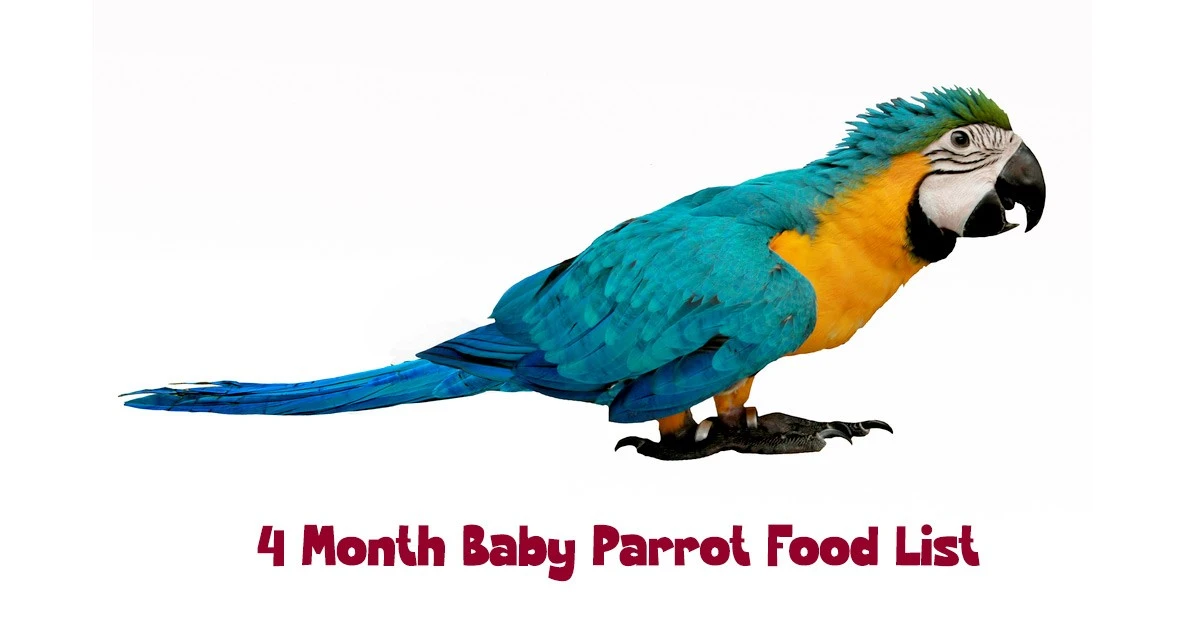Raising a baby parrot is a rewarding journey that requires careful attention to their dietary needs to ensure they grow healthy and strong. Understanding the 4-month-old baby parrot food list is crucial for new parrot parents aiming to provide the best care for their young avian companions.
Nutritional Needs of a 4-Month-Old Baby Parrot
At four months, baby parrots are transitioning from hand-feeding formulas to more solid foods, making it a critical time for their nutritional development. The 4 month baby parrot food list includes a variety of foods to cater to their growing needs.
Table: Essential Foods for 4 Month Baby Parrots
| Food Type | Benefits |
|---|---|
| Fresh Fruits | Vitamins, hydration |
| Vegetables | Minerals, vitamins |
| Pellets | Balanced nutrition |
| Cooked Grains | Energy, digestion |
| Proteins (Eggs) | Growth, feather health |
The Core of the 4 Month Baby Parrot Food List
High-Quality Pellets: A Staple
Pellets should form the basis of your 4 month baby parrot food list. They’re formulated to provide a balanced diet suited to the nutritional needs of growing parrots. Ensure that the pellets are designed for baby parrots, as they’re easier to digest and are nutrient-dense to support their development.
Fresh Fruits and Vegetables: For Vitality
Incorporating a variety of fruits and vegetables is essential. Baby parrots can start trying different types of soft fruits and veggies at this stage. Examples include:
- Fruits: Apple (without seeds), banana, and pear.
- Vegetables: Carrots, sweet potato, and spinach (in moderation).
These should be finely chopped or pureed to prevent choking and facilitate easier digestion.
Cooked Grains and Proteins: Supporting Growth
Cooked grains like rice, quinoa, and oats can be introduced to provide energy and aid digestion. Small amounts of protein, such as hard-boiled eggs, can also support feather growth and overall health. Ensure these are cooked and mashed to the right consistency for easy consumption.
What Can Baby Parrots Eat?
- Commercial Parrot Hand-Feeding Formula: Specifically formulated to meet the nutritional needs of baby parrots, this should be the primary food source.
- Fresh Vegetables: Cooked or finely chopped vegetables such as carrots, sweet potatoes, peas, green beans, and broccoli provide essential vitamins and minerals.
- Fresh Fruits: Offer fruits like apples, bananas, berries, oranges, and grapes, ensuring they are cut into small, manageable pieces.
- Sprouts: Nutrient-rich and easily digestible, sprouted seeds like mung beans, lentils, and alfalfa are excellent for baby parrots.
- Soft Cooked Grains: Cooked rice, quinoa, oats, and millet provide carbohydrates and are gentle on their developing digestive systems.
- Healthy Seeds: Small amounts of healthy seeds like sunflower, safflower, and pumpkin can be offered as treats.
- Hard-Boiled Eggs: Crushed or finely chopped, eggs provide high-quality protein for growth and development.
- Small Portions of Nuts: Offer small amounts of unsalted, shelled nuts like almonds, walnuts, and pecans as occasional treats.
- Calcium Supplements: Crushed eggshells or commercially available calcium supplements can be sprinkled on their food to support bone development.
- Clean, Fresh Water: Ensure access to clean water at all times for hydration.
Foods to Avoid
Knowing which foods to avoid in the 4 month baby parrot food list is crucial. Chocolate, avocado, and caffeine are toxic to parrots and should never be included in their diet. Also, avoid giving honey and whole nuts, which can pose health risks or choking hazards.
Feeding Schedule and Tips
Feeding your 4-month-old baby parrot requires a consistent schedule. Aim for three to four small meals daily, gradually introducing new foods to monitor for allergic reactions or digestive issues.
Creating a balanced and nutritious 4 month baby parrot food list is essential for your baby parrot’s growth and health. You can ensure they receive all the necessary nutrients by providing a variety of pellets, fruits, vegetables, grains, and proteins. Always consult a veterinarian specializing in avian care for personalized advice and to address dietary concerns.
